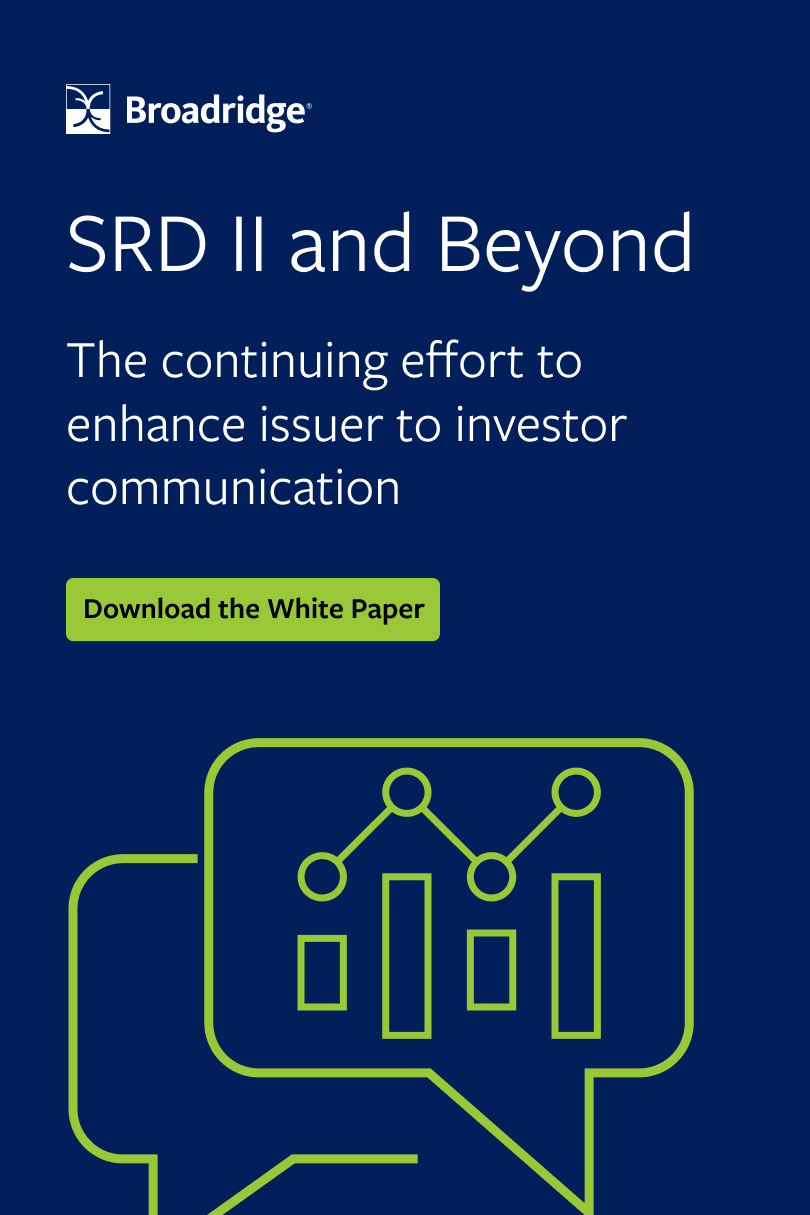With the rise of ecommerce, Uber, Airbnb and faster payments, the digital revolution is an ever-present reality of everyday life.
However, the effects of this seismic shift on financial services providers remains somewhat uncertain, with potentially groundbreaking technologies remaining at fledging levels, and industry participants at odds about the effects they could have.
The Multifonds Every Fund Survey 2017 suggested that asset managers have not yet felt the effects of rapid technological change.
But, with low interest rates, investors demanding lower fees and consistent returns, financial and political uncertainty, and regulation and compliance costs, there is finally a significant driver for change.
The survey cites a “tsunami of regulation” following the 2008 financial crisis, suggesting that this has increased the strain on asset managers to meet requirements across back- and middle-office systems, and pressure to innovate.
Indeed, regulation emerged from the Multifonds survey as the top business challenge, with 65 percent of respondents naming it as one of their top three concerns.This was followed by fee pressure, considered a top-three challenge by 54 percent, and reducing costs, named by 37 percent.
Multifonds CEO Keith Hale said when the survey was launched in June: “Asset managers are facing a real profitability squeeze as the cost of regulation continues to go up while investors expect fees to go down. How much further can the margins be pushed before the industry recognises that it needs a complete overhaul?”
The move towards financial technology is also evident in the EY FinTech Adoption Index 2017, also released last month.
While average fintech adoption, globally, stands at 33 percent, the survey found that, looking at the emerging markets of Brazil, China, India, Mexico and the rest of South America, this increases to 46 percent.
The report said: “This is because fintech firms excel at tapping into the tech-literate, but financially underserved population, of which there are particularly high ratios in emerging countries.”
Fintech adoption is highest in China (69 percent) and India (52 percent), followed by the UK (42 percent), Brazil (40 percent) and Australia and Spain (both 37 percent).
The report said: “Fintech firms are establishing themselves not only as significant players in the industry, but also as the benchmark for financial services.”
In the Multifonds survey, some 61 percent of respondents said they believe there is a threat of a game-changing fintech disruptor coming into the market, up from 54 percent who thought this was the case 12 months ago.
However, the report also noted that there is “considerable skepticism” around the ability for an outsider to enter and operate in the market, mainly because of the sheer complexity of setting up.
But this mindset doesn’t appear to correlate with EY’s data. The fintech adoption index launched in 2015 with six original markets: Australia, Canada, Hong Kong, Singapore, the UK and the US.
Between 2015 and 2017, the UK and Australia saw significant increases in fintech take-up, from 13 to 37 percent in Australia and from 14 to 42 percent in the UK.
Each of the six markets registered an increase in fintech take-up, with the smallest jump seen in Hong Kong. This started with a relatively high 29 percent, increasing to 32 percent in 2017.
Respondents were also asked what they perceive to be the biggest barriers to adoption of fintech.
Almost universally, where results are available, fewer respondents said they would now favour a traditional financial services provider over a fintech startup.
In Australia, for example, 23 percent said they would prefer to use a traditional provider in 2015, a figure that dropped to just 10 percent in 2017.
In the US, this figure fell from 22 percent to 13 percent, and in the UK, it fell from 14 percent to a mere 5 percent.
Again, Hong Kong stood out, this time as the only market where the trend was reversed. Here, in 2015, only 11 percent said they would prefer to use a traditional service provider, compared to 12 percent in 2017.
Generally, this data implies that trust in fintech services has increased significantly over just two years.
With regards to barriers to entry, respondents to the Multifonds survey perceived regulatory compliance to be the biggest barrier to entry for new fintech disruptors, named by 69 percent.
This was followed by back-office complexity, named as a challenge to startups by 33 percent.
Being able to offer appropriate investment products was considered a barrier to disruptors by 24 percent, while technology capability was, predictably, not considered a major issue, named as a challenge by only 14 percent.
The report said: “Getting up to speed in the post-2008 regulatory environment is therefore seen as the most difficult step to entering the asset management industry, and is potentially what has held off game-changing disruption that has been seen across so many other industries.”
However, some 92 percent of survey respondents said they think innovation will increase in the asset management industry over the next two years, and 47 percent said this increase will be “significant”.
The report boldly claimed that “the threat of external disruption seems a practical improbability”, adding: “There is certainly increasing recognition that game-changing innovation needs to come from within the asset management industry.”
Conversely, the EY report observed that, although there are regional variations, regulation could in fact have the opposite effect for startups.
It said: “Regulation plays a part in enabling new entrants and offerings in fintech, and particularly in money transfer and payments, and insurance services. In some markets, new regulation creates opportunities for new fintech firms and services, such as the Payment Service Directives (PSD) and PSD2 across the eurozone, which triggered open banking, and the launch of new ‘payments banks’ licenses in India, which introduced greater competition.”
“In other markets, such as China, open regulations allow both fintech and non-financial services firms to innovate how financial services products are offered, which enables their mobile leadership.”
The report also noted that some regulators, such as the UK’s Financial Conduct Authority, are encouraging fintech development through sandboxes, task forces, and steering groups.
“For policymakers in developed markets, fintech is seen to be a means of encouraging economic activity, improving industry efficiency and providing better services to consumers.”
“New regulations, rather than being perceived as an unwanted burden by fintech firms, are viewed as an acknowledgement of their legitimacy by the ultimate authorities.”
It added: “[Fintechs] also benefit from a ‘leapfrog’ effect in being able to implement newer technologies without having to address legacy systems.”
One thing that both papers appear to agree on is that the answer lies in some kind of collaboration involving the fintech startups, the regulators, the incumbent institutions and the investors.
The EY report said: “The industry stands to benefit from the cross-fertilisation of ideas, talent and innovation.”
The Multifonds paper went into more detail, saying: “Established financial services firms face both ‘unbundling’ and ‘rebundling’ of their propositions, resulting in disruption of traditional customer relationships.”
“However, this also creates opportunities for startups and established firms to collaborate. Investment and regulatory support will continue to play a role in stabilising the development of the fintech industry, which will benefit consumers.”
Hale concluded: “The wider industry is now in a position where it must replace fragmented functions and systems with highly efficient processes using scalable modern technology, or risk being disrupted into the history.”



